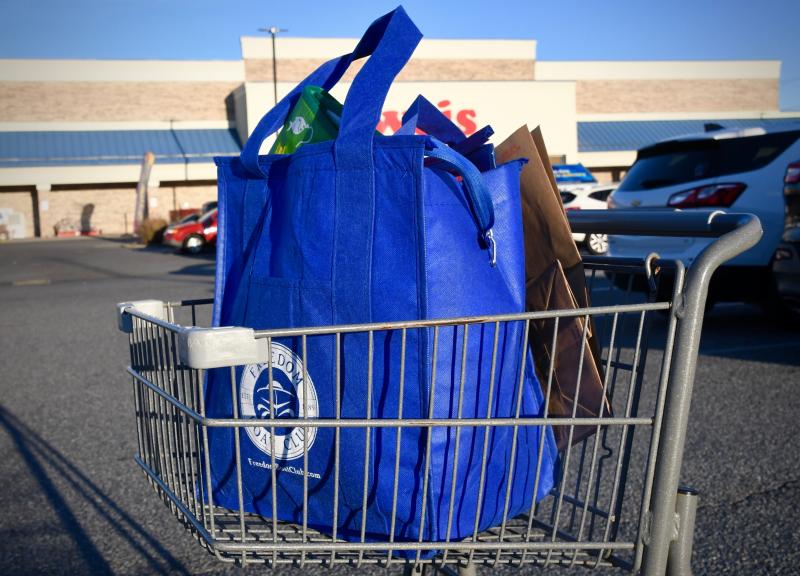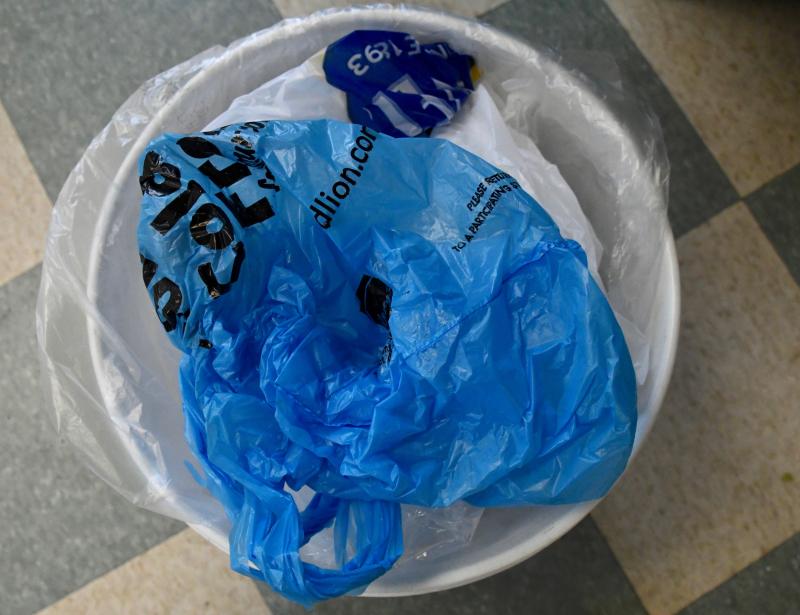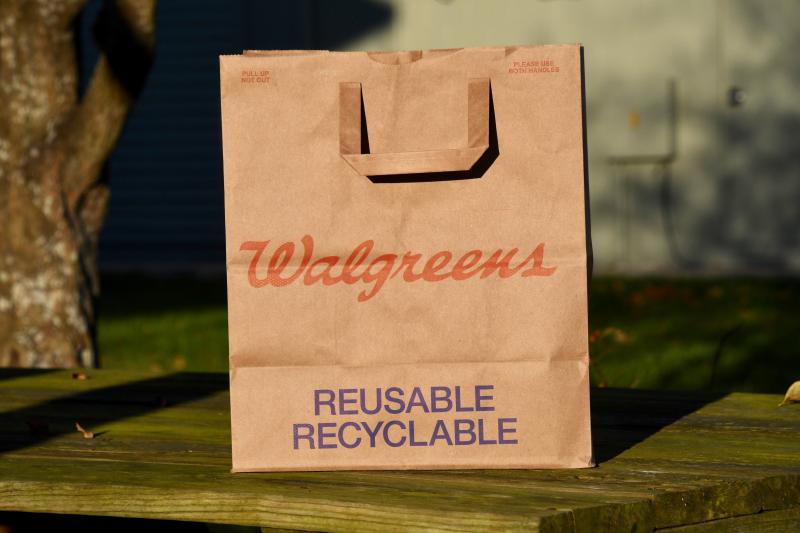Consumers and many businesses in Delaware will no longer be able to use or distribute single-use plastic carryout bags at checkouts starting Friday, Jan. 1. Plastic carryout bags are commonly used to take items home from convenience, grocery and other retail stores.
Americans throw away more than 100 billion plastic bags a year with only 1 to 3 percent of bags being recycled, according to the Environmental Protection Agency.
Walmart alone distributes between 18 billion and 20 billion plastic bags annually.
Under House Bill 130, single-use plastic bags will no longer be available from larger stores of more than 7,000 square feet, as well as smaller stores of 3,000 square feet or more with at least three locations in Delaware. Supermarkets and big-box stores are affected, as well as chain stores and convenience stores. Restaurants are not subject to the ban, nor are small stores with one or two locations.
Retailers can choose to offer paper bags, cloth bags or a thicker type of plastic bag that is reusable. The law allows retail stores to charge a fee for the bags they provide.
All retail stores affected by the law are required to provide an at-store recycling program for plastic bags and other plastics, such as cereal box liners, newspaper sleeves and single-use produce or meat bags.
Grocery stores can still offer plastic bags for fruits and vegetables, and to wrap meats in.
The drop-off locations must be visible and accessible within the store. Plastic bags should not be placed in bins that are part of the state’s curbside recycling program but should instead be returned to stores for recycling, said Delaware Department of Natural Resources and Environmental Control officials.
Reasons for the ban
DNREC officials said the ban is designed to reduce beach and roadside litter, save landfill space, increase recycling efforts and keep recycling facilities from having to shut down when plastic bags get stuck in the machinery.
“Nearly 2,400 tons of plastic bags end up in our landfills annually,” said Delaware Department of Natural Resources and Environmental Control Secretary Shawn Garvin. “A decrease by the public of plastic carryout bags can mitigate a large portion of this waste, and help our environment by reducing the amount of plastic bags on our roads and waterways that can harm us and our wildlife.”
COVID-19 concerns
At the top of the list of concerns from consumers is how the COVID-19 pandemic will affect what stores will allow at checkout.
Currently, some stores do not allow customers to bring their own bags, and nearly all stores require customers to bag their own purchases out of concern for employees coming in contact with the virus.
Under the law, it's up to individual stores and companies if they choose to allow reusable bags brought in by customers.
Shoppers should check their store's policy, said DNREC's Nikki Lavoie. “We’re encouraging stores to allow customers to bring their own reusable bags. While the primary way to contract coronavirus is via person-to-person contact, customers should clean their bags before each use. Retailers may have customers bag their own purchases. Employees should sanitize the checkout area and shopping carts before the next customer is helped.”
Officials urged consumers to clean and disinfect bags between uses. Based on DNREC’s review of studies and practices encouraged by the Centers for Disease Control and Prevention, these steps help maximize everyone’s safety while supporting reusable bags, Lavoie said.
More than 115 public health experts have issued a statement, which states that reusable bags can be used safely: “Single-use or reusable bags are no better or worse for transmission or prevention of transmission of the COVID infection.”
Clean bags after use
CDC officials say COVID-19 is spread mainly from person to person, through respiratory droplets produced when an infected person coughs, sneezes or talks. The droplets can also land on surfaces, with the potential to infect people who touch the surfaces and then their faces.
According to CDC officials, moisture lingers on plastic surfaces, while it is absorbed into and dried on paper and cloth. Thus the virus survives the longest on plastic surfaces – up to seven days – and the shortest on paper and cloth, 3 to 24 hours. Under these circumstances, the safest approach for shoppers and grocery store workers is to choose recyclable paper grocery bags or to bring a freshly washed, reusable cloth or canvas shopping bag to a self-service checkout line.
For more information, go to de.gov/bags.
EXEMPT: Restaurants and small stores under 7,000 square feet with fewer than three locations in Delaware.
NOT EXEMPT: Stores larger than 7,000 square feet, including grocery stores, large retailers and most convenience stores such as Wawa and Royal Farms.
BY THE NUMBERS
4 trillion Plastic bags used annually worldwide
100 billion Plastic bags taken home by Americans each year
1,000 Years it takes a plastic bag to degrade
12 Seconds a typical bag is used
8 States that have plastic bag bans
1 Percent of plastic bags recycled each year





















































